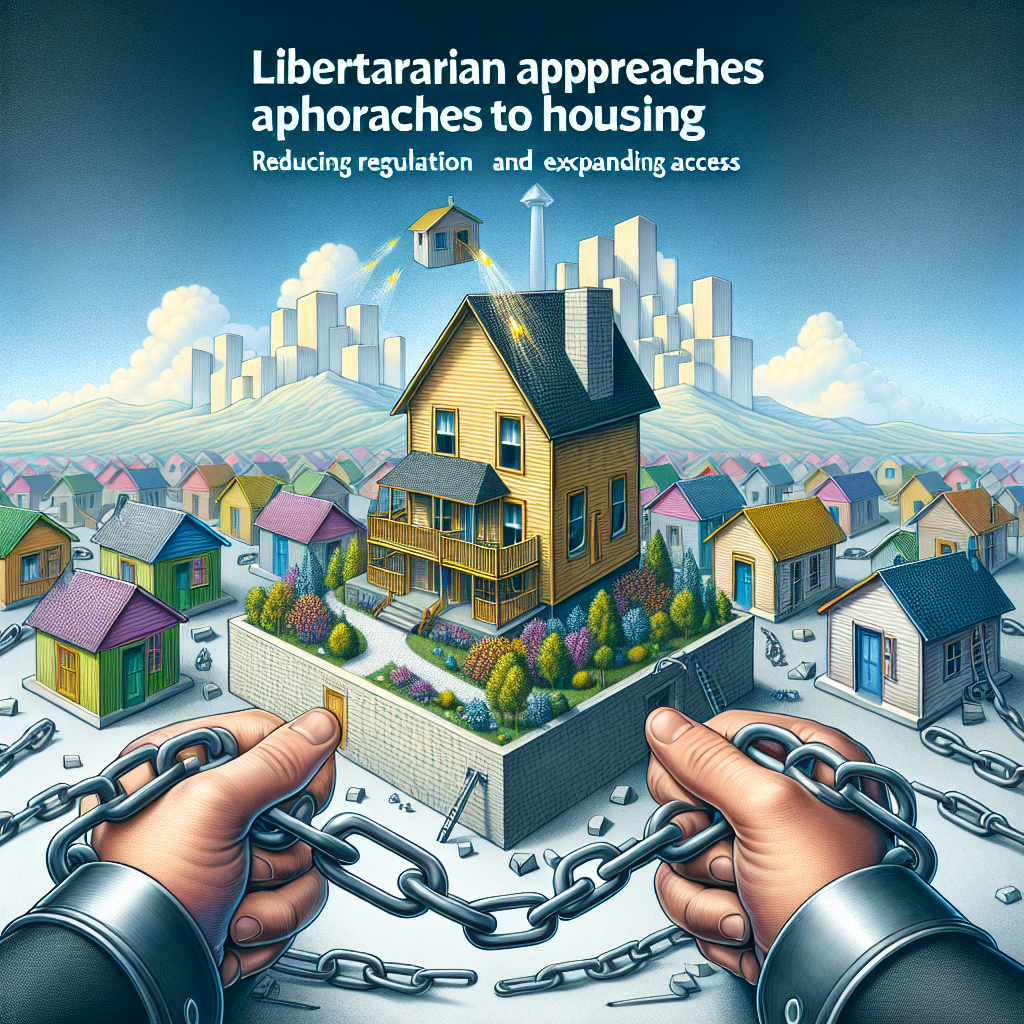Libertarian Approaches to Housing: Reducing Regulation and Expanding Access
The housing market is a complex landscape influenced by various factors, including government regulations, economic conditions, and social trends. Libertarian principles advocate for minimal government intervention and maximized individual freedom, particularly in the realm of housing. This article explores how libertarian approaches can reduce regulation and expand access to housing.
Understanding Libertarian Principles in Housing
Libertarianism is fundamentally rooted in the belief of individual liberty, personal responsibility, and limited government intervention. In housing, these principles can create a more dynamic and responsive marketplace that empowers individuals while fostering innovation.
Individual Freedom in Housing Decisions
At its core, libertarian housing philosophy emphasizes the right of individuals to make their own choices. By reducing regulations, homeowners and renters can enjoy greater freedom in how they utilize their properties. This includes choices regarding renovations, rentals, and even the types of building materials used, unleashing creativity and diversity in housing options.
The Case for Reducing Housing Regulations
Zoning Laws: A Barrier to Affordability
Zoning laws often dictate how land can be used, limiting property owners’ ability to develop or renovate. Libertarian perspectives argue that these regulations can artificially constrain supply, leading to increased housing prices. By advocating for flexible zoning laws or even eliminating them altogether, more affordable housing solutions can emerge.
Permitting and Licensing: Streamlining Processes
The permitting process is often lengthy and cumbersome, discouraging new construction and renovation projects. Libertarians support reducing red tape and streamlining licensing processes, allowing builders and developers to respond quickly to market demands. This approach not only expedites construction but also helps mitigate housing shortages.
Expanding Access Through Market Solutions
The Role of Private Enterprises
Libertarian approaches often emphasize the importance of private enterprises in addressing housing needs. By fostering competition among developers, the market can adapt to diverse housing demands. This could lead to innovative housing solutions, such as tiny homes or co-housing communities, which can provide viable alternatives to traditional single-family homes.
Public-Private Partnerships
While libertarians generally advocate for limited government, strategic public-private partnerships can effectively address housing shortages. By collaborating with private developers, local governments can identify and fund projects that meet community needs without exerting excessive control or regulation.
Encouraging Innovative Housing Models
Co-housing and Community Living
Libertarian principles encourage creative approaches to living arrangements. Co-housing, where individuals share communal spaces while retaining private residences, can reduce costs and foster a sense of community. Such models often require fewer regulations, allowing residents to create their living environments.
Utilizing Technology
The rise of technology and digital platforms has transformed traditional housing markets. Innovations like modular homes and 3D-printed housing can significantly lower construction costs and time. By reducing regulatory impediments to these technologies, libertarian frameworks could facilitate quicker, more efficient housing solutions.
Addressing Concerns about Libertarian Housing Policies
Ensuring Safety and Quality
A common concern regarding reduced regulations is the potential decline in safety and quality. Libertarians argue that market forces will naturally ensure quality, as consumers gravitate toward reliable builders and developers. Furthermore, consumer choice can act as a powerful regulator; poor-quality housing will not attract tenants or buyers.
The Importance of Community Input
While advocating for reduced regulations, it is essential to balance this with community input. Libertarian approaches can incorporate decentralized frameworks where local communities have more say in the development process, ensuring that housing solutions meet the specific needs of residents.
Conclusion: A Path Forward for Housing
Libertarian approaches to housing emphasize reducing regulations, expanding access, and fostering innovation. By minimizing governmental control over zoning, permitting, and construction, a more dynamic housing market can emerge—one that better meets the needs of individuals and communities. As we navigate the complexities of the housing crisis, libertarian principles can offer valuable insights into creating a more accessible and affordable future.
By optimizing for relevant keywords such as "Libertarian housing solutions," "reducing housing regulations," and "expanding housing access," this article aims to engage readers seeking to understand the benefits of a less regulated housing market.
Share this content:












Post Comment